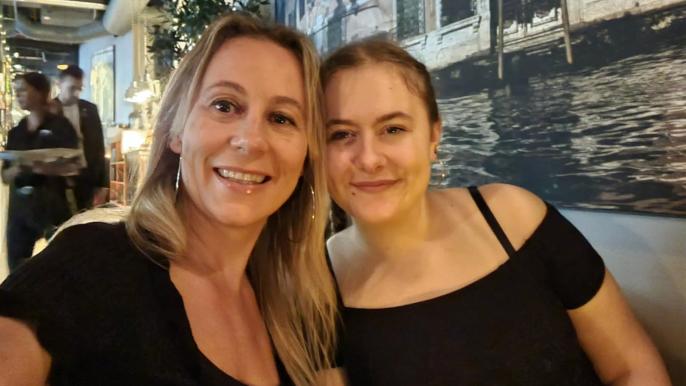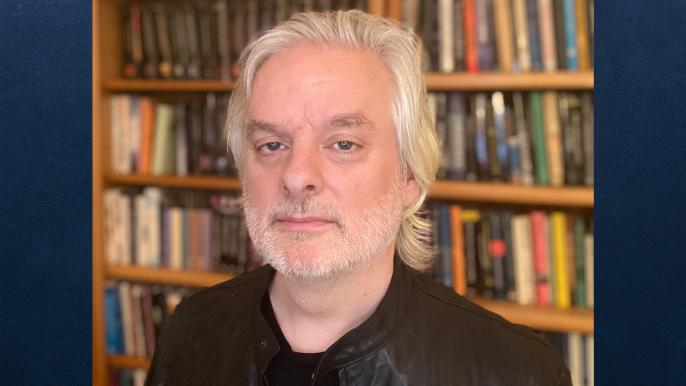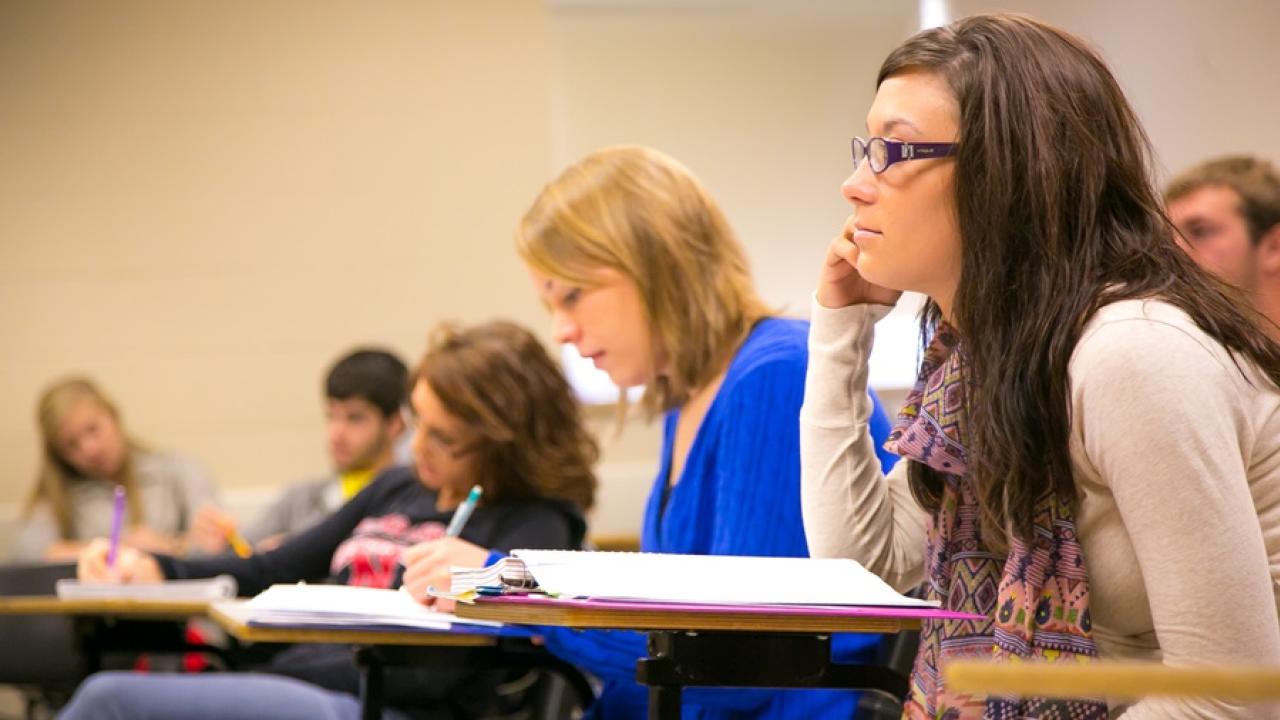Careers
Graduates pursue careers in business as advertising or human resources directors, as well as in human services, such as child life specialty, mental health, social and medical services and religious ministries. Many also enter graduate school in licensed psychology, counseling, law and occupational therapy.
Hands-On Learning
Research
Research experience in psychology is valuable for attaining faculty recommendations, acceptance into graduate school and relevant experience for a variety of careers.
Students who participate in research often present their work at the Arthur Olsen Student Research Symposium, as well as at professional conferences such as the Annual Meeting of the Midwestern Psychological Association in Chicago, Illinois.
The AU Psychology Department recommends the following:
Faculty Laboratories

Eating and College Health (EACH), Dr. Lindsay Howard
Members of the EACH Lab investigate facets of interpersonal interactions within social contexts that contribute to disordered eating and body image issues. Howard’s current research projects investigate social deficits present in mouse models of anorexia nervosa and the efficacy of a peer-led body image intervention on Augustana's campus.

Healthy Experiences Across Life (HEAL), Dr. Lucas Hamilton
With studies on Alzheimer's disease, mental health stigma and social connection, the HEAL laboratory investigates myriad facets of health. Students in Hamilton’s lab will gain expertise in neuropsychological testing, social network analyses and basic socioemotional vignettes alongside standard survey-based methods.

Music, Social Interaction & Cognition (MuSICog), Dr. Shannon Proksch
Students in the MuSICog laboratory research the neural dynamics of music cognition -- from lower level beat-processing and rhythm perception to higher-level coordination and social interaction. Proksch is an expert in using electroencephalography (EEG) to record electrical activity in the brain during music listening, mining acoustical or motion capture data to study the rhythms of coordination during human group interaction and/or music-making, and working with survey data regarding social/musical interactions.
Counseling Psychology Laboratory, Dr. Benjamin Jeppsen
Jeppsen examines the variables that explain the diverse effects of prayer on mental health. This includes level of self disclosure in prayer, interpersonal relational factors, prayer types, trust-based beliefs and locus of control. Students in this lab have contributed to a large meta-analysis on prayer measurement in studies over the last three decades.
Social Psychology Laboratory, Dr. Anne Zell
Zell has studied a variety of social psychological phenomena. This includes how narcissism, psychopathy and Machiavellianism relate to student behavior, as well as the benefits of receiving supportive affirming responses when sharing positive personal news on social media. Past research topics have included humility, forgiveness, morality of deception and how receiving praise affects people.
Practicum
Students gain a greater understanding of psychology when they can observe it being applied in real-world settings. The Augustana Psychology Department strongly encourages students to gain hands-on experience relevant to their future career through volunteering, working or doing a practicum. These experiences help students to learn about themselves, discern their vocation, and build a strong resume. Students interested in practicum should complete the practicum application and make an appointment to talk with Dr. Benjamin Jeppsen.
Practicum opportunities include:
- Avera or Southeastern Behavioral Health
- Children's Inn
- Volunteers of America
- Helpline Center
- Arch Residential Treatment Center
- National Alliance on Mental Illness (NAMI)
- LifeScape
Courses & Organizations
Psychology students often pursue other areas of study. The following programs are highly complementary to a psychology degree:
- Neuroscience
- Social work
- Children & youth
- Aging studies
- Medical humanities & society
Psychology students often participate in:
- Psychology Club
- Lost & Found
- Serving and Learning Together (SALT)
- Viking Advisor (VA)
- Psi Chi International Honor Society







